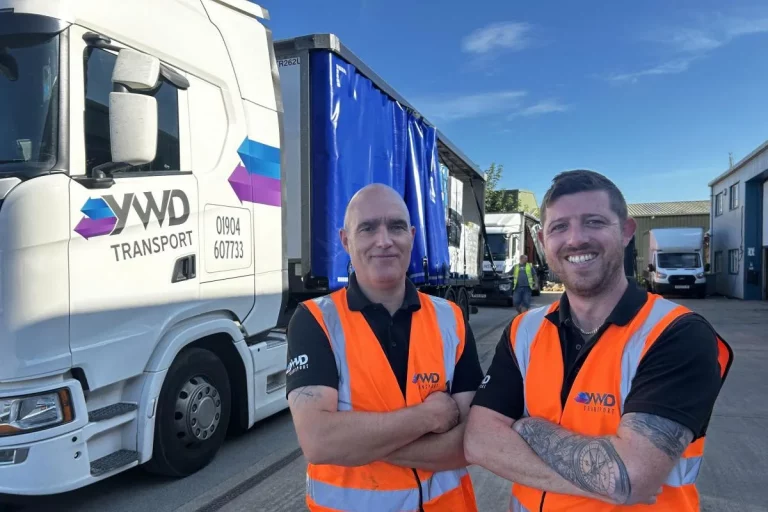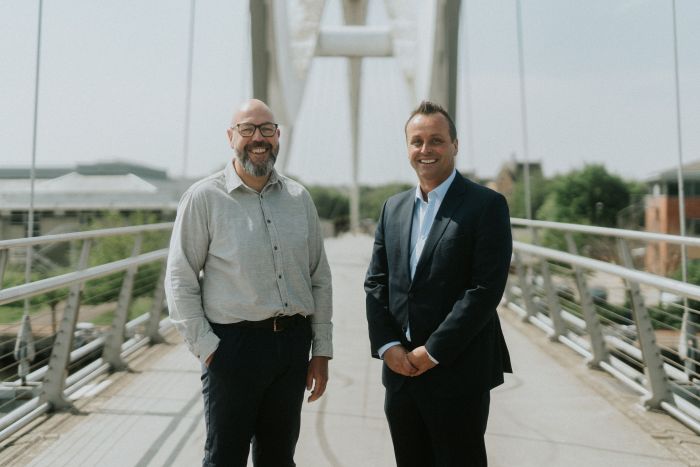Yorkshire’s industrial and logistics occupational market has strengthened with a strong H1 performance and includes one of the country’s largest lettings of the year.
In South Yorkshire and North East Derbyshire, the first half of the year saw 2.4m sq ft transacted, marking the strongest H1 period since 2021.
Take-up of units over 50,000 sq ft in Q2 exceeded 1.1 million sq ft, a significant rise from the 422,000 sq ft transacted in the same period last year.
In West Yorkshire, the largest letting in 2025 so far was completed by ID Logistics who took a new lease on Logicor’s 556,000 sq ft high-bay warehouse (Sherburn 550) in Sherburn in Elmet, Selby.
H1 2025 in West Yorkshire totalled 1.7 million sq ft, with 751,600 sq ft recorded in the second quarter (units 50,000 sq ft+), an increase of 41% on H1 last year, boasting the region’s strongest first-half performance since 2021 and continuing a three-year upward trend in take-up.

Commenting on the South Yorkshire and North Derbyshire region, Rebecca Schofield, partner, Knight Frank, said: “We are continuing to see a steady level of occupier requirements in the market. Occupier are taking time to make decisions but we have seen a number of transactions happen at the larger end of the market, which is positive as it demonstrates occupier confidence is returning.
“Whilst there remains choice in the market, some size brackets, such as the 100,000–150,000 sq ft bracket, are seeing more limited supply.
“Demand for the region continues to be from a mixture of B8 and B2 occupiers, which we expect to continue. Availability of power continues to be a driver for both B2 and B8 occupiers.”

Turning to the West Yorkshire and Humber markets, Iain McPhail, partner in Knight Frank’s Leeds Logistics and Industrial Agency team, said: “Take-up in Q2 hit around 750,000 sq ft (50,000 sq ft+).
“Whilst take-up is expected to surpass last year’s total by the end of the next quarter (with over 400,000 sq ft of space under offer), it will highlight the even greater need for speculative development in prime West Yorkshire.
“For greater context, there are now only nine grade A units available in the region, none of which are larger that 200,000 sq ft.
“Consequently rental growth and market sentiment continue to increase in the region with the mid-box headline rent now reaching a new market high of £10.25 psf achieved at Leeds Valley Park.”
 Commenting on the South Yorkshire and North Derbyshire region, Rebecca Schofield, partner, Knight Frank, said: “We are continuing to see a steady level of occupier requirements in the market. Occupier are taking time to make decisions but we have seen a number of transactions happen at the larger end of the market, which is positive as it demonstrates occupier confidence is returning.
“Whilst there remains choice in the market, some size brackets, such as the 100,000–150,000 sq ft bracket, are seeing more limited supply.
“Demand for the region continues to be from a mixture of B8 and B2 occupiers, which we expect to continue. Availability of power continues to be a driver for both B2 and B8 occupiers.”
Commenting on the South Yorkshire and North Derbyshire region, Rebecca Schofield, partner, Knight Frank, said: “We are continuing to see a steady level of occupier requirements in the market. Occupier are taking time to make decisions but we have seen a number of transactions happen at the larger end of the market, which is positive as it demonstrates occupier confidence is returning.
“Whilst there remains choice in the market, some size brackets, such as the 100,000–150,000 sq ft bracket, are seeing more limited supply.
“Demand for the region continues to be from a mixture of B8 and B2 occupiers, which we expect to continue. Availability of power continues to be a driver for both B2 and B8 occupiers.”
 Turning to the West Yorkshire and Humber markets, Iain McPhail, partner in Knight Frank’s Leeds Logistics and Industrial Agency team, said: “Take-up in Q2 hit around 750,000 sq ft (50,000 sq ft+).
“Whilst take-up is expected to surpass last year’s total by the end of the next quarter (with over 400,000 sq ft of space under offer), it will highlight the even greater need for speculative development in prime West Yorkshire.
“For greater context, there are now only nine grade A units available in the region, none of which are larger that 200,000 sq ft.
“Consequently rental growth and market sentiment continue to increase in the region with the mid-box headline rent now reaching a new market high of £10.25 psf achieved at Leeds Valley Park.”
Turning to the West Yorkshire and Humber markets, Iain McPhail, partner in Knight Frank’s Leeds Logistics and Industrial Agency team, said: “Take-up in Q2 hit around 750,000 sq ft (50,000 sq ft+).
“Whilst take-up is expected to surpass last year’s total by the end of the next quarter (with over 400,000 sq ft of space under offer), it will highlight the even greater need for speculative development in prime West Yorkshire.
“For greater context, there are now only nine grade A units available in the region, none of which are larger that 200,000 sq ft.
“Consequently rental growth and market sentiment continue to increase in the region with the mid-box headline rent now reaching a new market high of £10.25 psf achieved at Leeds Valley Park.” 











